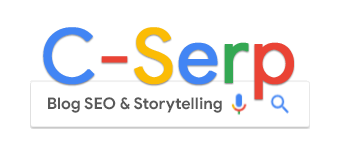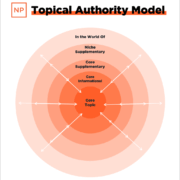12 actionable tips for the Google AI Mode era

Optimizing for Google AI Mode (and AI search in general) isn’t just business as usual for SEO professionals.
But it also doesn’t necessitate a deep technical understanding of vector space or dense retrieval models.
Instead, it calls for recognizing and addressing the evolution of both Google Search and user behavior.
This means adapting existing SEO tactics (yes, SEO is still not dead) with updated strategies, fresh applications, evolving approaches, and new ways to measure success.
While these tips will help prepare your strategy for the future, remember the immediate goal is to win today.
Currently, most people aren’t using AI Mode, and AI search still accounts for less than 1% of most brands’ traffic from what I’ve seen from client data.
However, it is crucial to strategically prepare for tomorrow, as AI will undoubtedly expand its role and continue to bring significant new opportunities.
If you want to win today while also preparing for tomorrow, implement these 12 tips.

1. Cultivate deep topical authority
Strive to become a go-to expert in your space by creating a wealth of insightful content that thoroughly explores your main topics and subtopics.
Think of your goal as being the most comprehensive and reliable resource available.
Ensure your pages link to one another naturally, guiding users and AI through your content like a clear, structured map.
Your goal is to have Gemini find your brand for as many topically related queries as possible and to make your message as relevant as possible.
When writing your content, focus on genuinely explaining concepts and their relationships, not just sprinkling in keywords.
The aim is to make your expertise unmistakably clear and valuable to both people and AI systems.

Dig deeper: How AI Mode and AI Overviews work based on patents and why we need new strategic focus on SEO
2. Build your brand through search everywhere optimization
In 2025, much of search is beyond our direct control.
That makes it vital to focus on what you can influence: your brand.
Build a strong brand presence through diverse channels and invest in digital PR to expand your reach.
In addition to building strong topical authority on your site, you also need a search everywhere optimization strategy to make sure your content is discoverable across all the platforms where AI models, like Gemini, collect information.
The ultimate goal is for AI to identify your brand as the most relevant and valuable resource at every stage of its reasoning, effectively answering both explicit and implied user questions.
3. Be user-driven
AI Mode is user-first, so success in this new chapter will require user-centric approaches.
AI Mode answers will be heavily personalized, integrating user behavior and preferences from other Google sources (e.g., Gmail).
AI Mode answers will be contextualized based on user embeddings, which are like digital fingerprints based on things like:
- Search and click history.
- Content engagement history.
- Location.
- Demographics.
Google’s longstanding recommendation to do what’s best for your users has never been more critical.
Dig deeper: The next wave of search: AI Mode, deep research and beyond
4. Create unique content
Standing out has never been more crucial. Simply replicating existing content from competitors won’t work.
You need to create something truly unique and valuable, leaning into the existing E-E-A-T framework. This means:
- Leveraging proprietary or custom data.
- Integrating exclusive quotes.
- Showcasing contextualized subject matter expertise to deliver content that genuinely hasn’t been done a dozen times before.
5. Think beyond rankings and clicks
Success metrics in modern-day search are changing.
Google hasn’t shared data backing up their claim that clicks in an AI Overview SERP are coming from “more engaged audiences” that are “more likely to spend more time onsite.”
Still, the recommendation to “understand the full value of your visits” is valid, nonetheless.
Make sure you focus on lower funnel KPIs and how those are trending.
Rather than just traffic volume, this means evaluating metrics like:
- Transactions.
- Leads generated.
- Customer lifetime value.
Understanding the qualitative impact of AI visits will be key to understanding and proving ROI.
Dig deeper: 12 new KPIs for the generative AI search era
6. Audit your content for relevancy and freshness
Relevance is everything in this next era of search.
Continuously audit and refresh your website content for stronger relevance and new insights.
Strategically retire outdated or off-topic content to optimize topical authority and overall site value.
This ensures your content provides the most current and comprehensive answers, aligning with how AI prioritizes information.
By maintaining a highly relevant and fresh content library, you signal expertise and trustworthiness to both users and AI.

7. Think outside the ‘search volume’ box
AI mode captures intent that the user didn’t explicitly express.
- Gemini moves beyond the initial prompt and determines user intent either:
- Directly from the user’s explicit query.
- By inferring and synthesizing it from their history and context.
While we aren’t in a position to completely eliminate search volume yet, conversational AI search will eventually render keyword search volumes less relevant and less accurate.
Instead of focusing solely on keywords and search volumes, take the time to ensure:
- Your content is semantically rich.
- Explores related concepts and diverse user intents.
- Provides a deep and authoritative understanding.

Dig deeper: Chunks, passages and micro-answer engine optimization wins in Google AI Mode
8. Start thinking about agent optimization
It will take time, but connecting with audiences via AI agents will be crucial as users will ultimately rely on agents rather than websites for their needs.
Agents will not only synthesize and personalize answers for people, but they’ll complete actions, too.
- Grabbing tickets to a Padres game.
- Signing up for a new yoga studio.
- Purchasing a new set of earbuds.
Agents will become personal assistants, and marketers need to start thinking about how they optimize content and experiences for agents.

9. Move beyond text-based content
AI Mode’s ability to synthesize information extends far beyond just text, actively incorporating imagery, audio, and video into its responses.
To maximize visibility and relevance, strategically diversify your content portfolio.
This means:
- Optimizing images with descriptive alt text and contextually relevant captions.
- Creating engaging video content with clear transcripts.
- Even exploring audio formats like podcasts, if you haven’t already.
Ensuring these assets are discoverable and clearly aligned with related topics will be crucial, as AI aims to provide comprehensive, multi-faceted answers.
If your content strategy remains solely text-focused, you risk being overlooked in this richer, more dynamic information landscape.
Dig deeper: How multimodal discovery is redefining SEO in the AI era

10. Invest in CRO and UX
With AI search reducing organic site traffic, every visitor becomes that much more valuable.
CRO focuses on refining your website to make it easier for users to take desired actions, such as:
- Completing a purchase.
- Submitting a form.
An optimized user experience ensures your site is intuitive, engaging, and easy to navigate.
Make sure you have clear calls to action, fast load times, and an overall frustration-free journey, so those who do visit can easily convert.

11. Onboard Profound
Profound is a best-in-class AI search optimization tool, built by a team who’s thinking isn’t clouded by the history of SEO and how things have been done historically.
They’re building technology specifically to help brands show up in LLMs and AI Mode.
Going forward, you’ll need data about your performance in AI search, such as:
- Sentiment.
- Citation frequency.
- AI share of voice.
Your standard SEO tools just aren’t going to cut it anymore.
Dig deeper: SEO in an AI-powered world: What changed in just a year
12. Put poor collaboration to bed
Winning in 2025 and beyond means there’s zero tolerance when it comes to working in silos.
Knowledge sharing and collaboration is the only path forward.
SEO, content, social media, CRO, user experience, engineering, digital PR, brand, product, and data and analytics will all have to work together to:
- Win AI visibility.
- Keep up with the shifts.
- React to what’s working or not.


